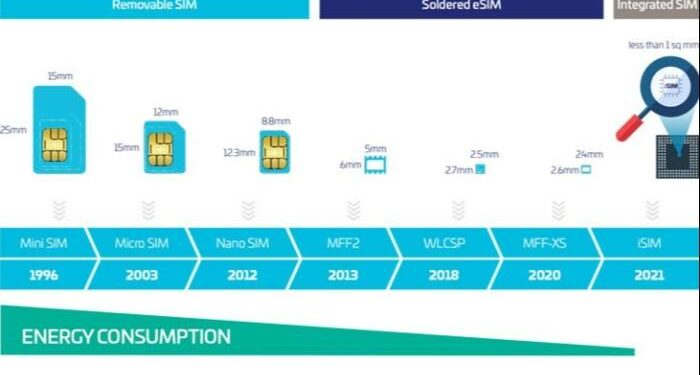You know non-fungible tokens (NFTs) have gone mainstream when Facebook and Instagram start allowing you to display such digital collectibles on your profile.
Those are the plans Meta is working on, according to this scoop from Hannah Murphy and Cristina Criddle. It could also help users mint and sell such unique tokens, which often represent digital artworks, on a new marketplace.
The popularity of NFTs surged last year, creating a global market worth $40bn, despite their critics seeing them as a speculative bubble plagued by scams and market manipulation. Dominant NFT marketplace OpenSea, which takes a 2.5 per cent cut of any sale, this month raised $300m at a $13bn valuation — just six months after raising $100m at a $1.5bn valuation. Meta rival Twitter is testing NFT showcasing capabilities, while Reddit has launched its own collection of NFT avatars.
Meanwhile, leading Silicon Valley VC firm Andreessen Horowitz plans to raise up to $4.5bn for a new set of cryptocurrency funds, aiming to more than double the amount it raised less than one year ago and easily surpass any other funds betting on the sector, reports Miles Kruppa. Andreessen was one of the most active cryptocurrency investors last year, striking large deals in the gaming start-up Sky Mavis and blockchain developer Solana Labs, as well as in OpenSea.
On the other hand, Russia is the latest country to do all it can to rein in crypto. The central bank has proposed outlawing all cryptocurrency issuance and operations, stopping banks from investing in cryptocurrencies, blocking exchanging crypto for traditional currency, and introducing legal liability for using crypto in purchases.
The Internet of (Five) Things
1. Microsoft-Activision deal to test regulators
Microsoft’s $75bn deal to buy Activision Blizzard is set to become a test case for the leaders of US antitrust agencies who have vowed to tackle Big Tech’s market power, according to our analysis. Electronic Arts has the credentials to be the next acquisition target for Big Tech, says Lex.
2. US Senate advances tech bill
A US Senate committee has voted through a bill that would reshape technology regulation, but which Silicon Valley companies warn would have dire consequences for their products and services. A 16-6 vote by the Senate judiciary committee to advance the American Innovation and Choice Online Act (AICOA) means it will now go to a full Senate vote.
3. Deliveroo serves up sharp order rise
The London-based food delivery company said gross transaction value — a measure of customer spending — rose 70 per cent in 2021 to £6.6bn. Its previous guidance, which had already been upgraded, was for growth of 60 to 70 per cent. Coverage of the UK population climbed to 77 per cent in December, up from 53 per cent at the end of 2020.
4. The hidden charging of EV ownership
Charging infrastructure has been unable to keep up with the accelerating pace of electric vehicle sales, writes John Thornhill in his latest column. Finding places and recharging meant his recent holiday trip to France took nearly one-and-a-half times as long as previously in a diesel car.
5. NFT video postscript: How sport is cashing in
The market for sports NFTs is set to reach $2bn this year. Early collectors, sports stars and even the leagues stand to gain. But average consumers could lose money if the bubble bursts on this new asset class. FT Scoreboard’s Sara Germano talked to the people behind the craze.
Forwarded from Sifted — the European start-up week
Nearly 14m people in the UK have delayed going to see a doctor out of embarrassment, according to healthcare company Essity. While in the US, start-ups such as Ro and Hims & Hers — which both offer digital clinics for men and women — have led the way in tackling the awkwardness of face-to-face appointments, European start-ups have been slower off the mark.
Nevertheless, a growing number of tech companies in the region are focused on remotely and discretely providing care for embarrassing issues. And they are starting to attract the attention of VCs. In the past 12 months, companies specialising in treating issues such as erectile dysfunction and premature ejaculation — including London-based duo Numan and Manual — and incontinence — such as Atlantic Therapeutics — have all opened investors’ wallets.
This week, Wellster, a digital health platform that specialises in conditions it says people usually only “whisper about at the doctor’s”, has also convinced VCs to put pen to paper. It’s just announced a $20m Series B round — only six months on from its $40m Series A. But which other start-ups are sparing patients’ blushes in Europe?
Elsewhere in European start-ups this week, Paris-based Wandercraft raised $45m to bring the launch of the world’s first self-balanced exoskeleton closer to commercial launch and Terra Quantum, the Swiss start-up offering quantum computing as a service over the cloud, raised a $60m Series A funding round.
Tech tools — the iSim
Meet the Sims, a community of technologies that determine how smartphones store your number. The plain old removable Sim card is still around, although it has got smaller over the years. The eSim often accompanies it now and is an embedded chip that can give you an extra number.
The next evolution is the iSim, which embeds the SIM functionality into the device’s main processor, “allowing for greater system integration, higher performance, and increased memory capacity”, according to Qualcomm, Thales and Vodafone, which have just produced a working smartphone featuring iSim. It can also be easily incorporated in laptops, tablets, IoT devices and wearables. Expect iSim to begin appearing in commercial devices this year, while Counterpoint Research predicts almost half a billion will support iSim by 2025.











